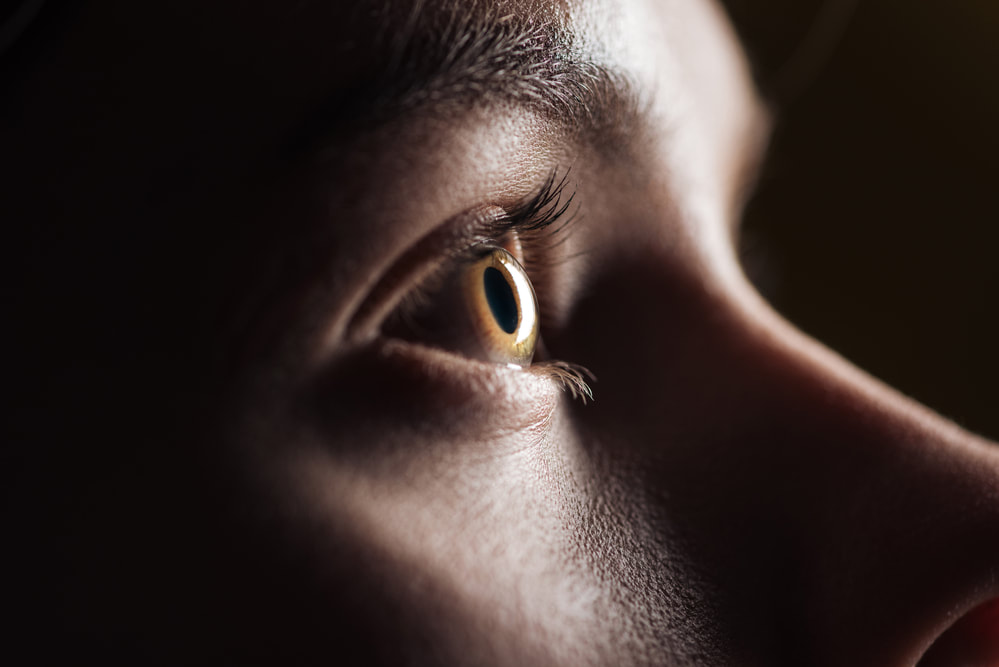How do the eyes adjust at night?The eyes continue to adjust to different lighting throughout your day. When you move into low light, the pupils dilate to allow more light into the eye. The retina receives the light. Cells in the retina called rods help you see in dim light or the dark. If the rods do not work as efficiently as they should, it may take your eyes longer to adapt from light to darkness. Conditions that may affect night visionDecreasing night vision is very common. According to the American Academy of Ophthalmology, various types of conditions can cause problems seeing as well at night, including: Cataracts: Cataracts develop when the proteins in the lens degenerate or break down. This is a common condition as a person ages. Symptoms of cataracts include blurry or cloudy vision and problems seeing in dim light. Cataracts are treatable with surgery to remove the lens and replace it with an artificial lens. Glaucoma: Glaucoma is a condition that damages the optic nerve in the eye. This can lead to gradual vision loss. One of the main symptoms of glaucoma is a blind spot in the field of vision. Medication is available that may help slow the progression of glaucoma. Nearsightedness : Nearsightedness involves seeing clearly when objects are close but not so clearly when they are far away. This can also affect night vision making it more challenging to see in dim light. Diabetes: People that have diabetes have an increased risk of eye diseases, such as diabetic retinopathy. Over time, uncontrolled high blood sugar levels can damage the blood vessels in the retina, which effects vision. Signs of poor night visionSigns of poor night vision may start gradually. You may not even notice signs at first. Indications you may be developing poor night vision include:
How do you deal with problems with night vision?The best way to deal with poor night vision is to see an eye doctor. Many eye diseases do not cause symptoms in the early stages, but through an eye exam, your doctor may be able to make a diagnosis. Recognizing and treating certain eye conditions may prevent vision loss or slow down the progression of the eye disease.
If you have diabetes, it is also essential to manage blood sugar levels to reduce your risk of developing eye complications, such as diabetic retinopathy. We hope the information above brings attention to night vision. Remember, problems with vision at night can impact your driving ability and risk of having an accident. If you would like to ask whether an appointment with one of our eye doctors would be appropriate at this time, call our office at 508-746-8600. Comments are closed.
|
EYE HEALTH BLOGCategories
All
Archives
July 2024
|
|
Kadrmas Eye Care New England
55 Commerce Way, Plymouth, MA 02360
14 Tobey Road, Wareham, MA 02571 133 Falmouth Road (Rt 28), Mashpee, MA 02649 |
Phone Number:
1-508-746-8600 Hours: Monday through Friday — 8 AM – 4:30 PM |


 RSS Feed
RSS Feed
